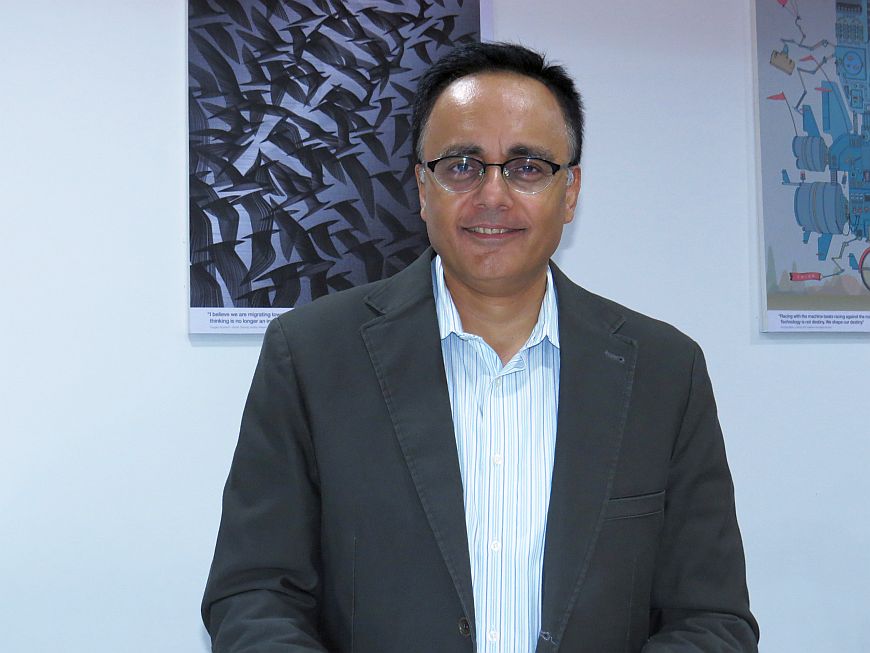As organizations move ahead on their Digital Transformation journeys, they appoint a Chief Digital Officer to lead the transformation. IBM is going through a transformation and becoming more platform-centric. It appointed one of its first CDOs outside the US to lead this transformation in India.
Nipun Mehrotra, Chief Digital Officer, IBM speaks about his role and the mandate of the Digital Business Group. He spoke about the performance metrics on which his success (and that of the group) will be benchmarked.
Q. What is the role of the Chief Digital Officer (CDO) like? What is your role as IBM’s CDO?
The role is evolving. The content and structure of the role will change. In its current context the CDO role means different things to different people. A CDO’s role in a Bank will be different than that in another industry. Even within IBM, as we evolve this role, what India does under the CDO mandate will be different than what (a CDO in) a European country does.
I am trying to amalgamate four different things with this business unit. It is a Digital Business Group (DBG) that we have formed, with the CDO heading it.
The CDO’s role (at IBM) is not just confined to the DBG. In some sense, I am answerable to the entire company to define how we want to transform ourselves.
On the one hand, I have a business unit responsibility. And on the other, I have a more subtle and more broader, internal responsibility, which says that I do need to engage the rest of the business units in IBM, to transform the way we should, from an outside standpoint.
So CDO role in some sense is a bit of a fulcrum between where we are, and what are strengths are – to where we want to go to. That’s the inflection point that we are trying to establish — that interface between the ecosystem, external investors, establishing a market platform, getting the customers connected to the ecosystem etc. That’s the new stuff.
What we have been good at, traditionally, is working with big clients, banks, telecom companies, manufacturing companies etc.
Q. How would you define your success? What are the KPIs for a CDO?
It is a difficult question. We don’t know yet what are the right things that will define success. We know what success looks like. I may end up measuring the wrong items and fool myself into thinking that I am being successful, when I am not – and driving the rest of the company in a different direction than what I need to drive.
IBM is traditionally very operational focussed. While that is necessary in our regular business, it may be a problem for us if I try and replicate that same model in this business.
Ultimately, this role, this transition and this transformation that IBM is going through has to drive growth for the company. Growth, in the context of this role is not going to happen over one or two quarters; the transition will take longer. Therefore, the steps that we measure have to conform to that kind of expectation rather than saying: ‘Did I close X transaction this week?’ If I try and do that then I would mislead the company. It would not deliver the transformation that it needs.
While I have been a business leader all my life and I focus on today’s execution and this week’s execution, in some sense I have to transform myself first and transform the company with me, to make this work.
Some metrics that are important for us are revenue, specific and strategic partnerships with startups, investors, incubators, external organizations. Also three-way partnerships involving customers, the ecosystem and IBM.
Q. How would you attribute the success of those to the function? What are the touchpoints that you look at?
Some elements of measurement would be the engagement that we see from the ecosystem onto the IBM platform.
When you look at a Solutions company, it is a highly customised, face-to-face approach. You build a customized solution for the customer. Then there is the Product company, where I am not building a customized solution, but I may be tweaking bits of it. But you have a product that you are taking to market. Now we are going to the third stage which is a platform. Here I need people to engage on it; not just 100 – 200 customers for a solutions company, or 5,000 customers for a products company, but now I am looking for millions of touchpoints as a platform.
We follow all three but we are now trying to be good at platforms, which are the cloud platform and the IBM Watson platform.
So, engagement of developers is a very key metric for us. It is not easy to measure that. I would like to see hundreds of thousands of developers engaging Watson for healthcare, for instance. Engagements of startups is another key metric. And there is engagement of our existing customers and SME customers.
Q. What is the charter of the IBM Digital Business Group?
We are trying to do four things. Firstly, we are trying to build our interface points with the ecosystem. For us, this includes startups, VCs, incubators, academia, and individual developers. Secondly, we have built a core technical team, that includes data scientists, machine learning & deep learning specialists. This team acts as a catalyst to help both existing customers and startups to experience the Watson platform through agile prototyping and development. The third one is focussed on the market platform. We are building the IBM marketplace which is a showcase for us. Externally it is a way to market, to provide customers and the ecosystem the visibility to IBM industry solutions and capabilities. I will also put third-party products onto that platform. The fourth piece is the Digital Sales organization that handles 3,000 – 4,000 customers across the country. These customers need the digital agile approach that we can provide. Secondly, we marry their need for innovation with the startups’ need for revenue and customers. That’s our sweet spot.
All this is a vital part of our transformation towards a platform approach.
——————————————————————————————-









